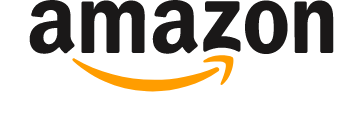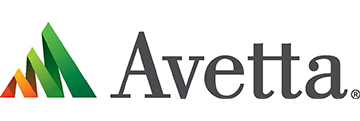
Soft skills have a misleading name. The reductive name for these competencies – which include communication, time management, problem solving and collaboration – suggests weakness when it should suggest strength. Not only are these interpersonal assets essential for leading workplace safety efforts, but they are also hard for some people to develop.
“The problem is that soft skills have a bad rap,” says Leah West, M.A., senior consultant at Decker Communications. “They’re seen as a nice-to-have, not a need-to-have.”
While technical subject matter expertise is important for companies that want to launch new safety and health initiatives, shift industry perspectives or lead organizational change, West explains, soft skills are the tipping point.
“A safety professional’s powers of influence and persuasion must be very strong,” says Chris Ross, CSP, CPLP, president and CEO of training and consulting firm The Engagement Effect. “In part, that’s because the people they need to influence don’t often report to them.”
Because these stakeholders within a company are the ones with the power to effect change, Ross continues, people working in occupational safety and health (OSH) must be able to understand the challenges stakeholders face, the outcomes they desire, the resources that are available and the best path for success. That’s a lot for one individual to manage – even someone who has been diligently honing their soft skills for years.
Any time in your career is a good time to become a better communicator and team player. Here are five steps straight from the experts that will help you get started.
1. Take Stock of Your Strengths and Weaknesses
Self-improvement inevitably begins with a long look in the mirror. Assessing your strengths and weaknesses with brutal honesty will help you understand where to invest your time, energy and resources. Maybe you’re a great listener, but you struggle with meeting deadlines. Maybe you excel at planning and executing new projects, but your temper often gets the best of you in workplace disagreements.
“It is rare that you will turn a weakness into one of your core strengths,” Ross says. “It’s better to enhance and build upon your strengths and use them to your best advantage while trying to minimize your weaknesses.”
2. Ask for Help
People develop soft skills by working with others, so strive to build this into your learning process. Seeking professional mentorship is also a good way to hold yourself accountable for your actions. This type of mentorship can come from those within your workplace or industry as well as those outside it.
“Start by asking a few people who work closely with you for your top three strengths and improvement areas when it comes to communication,” West says. “Then, consider getting a wider perspective. Ask your manager, a few peers and maybe a direct report.”
3. Practice Focusing on Your Audience
Successful communication requires clear messaging, but that’s not even half the battle. The emotional connection you build with your audience and the extent to which you consider the audience’s needs has an enormous impact on how your messaging will be received. Additionally, when professionals demonstrate their audience sensitivity through nonverbal cues such as eye contact, they build trust, rapport and credibility, West says.
“I once had a key recommendation for our leadership team that just wasn’t landing right,” she says. “I realized that it was all about me – my viewpoint, my insights, my team – but it didn’t reflect what the leaders cared about.”
Once she reconsidered the way she was delivering her recommendation, and focused on important financial and growth indicators for the business, her audience became much more receptive to the message.
4. Record and Evaluate Your Progress
Recording and reflecting on your progress could involve keeping a journal or writing quick notes throughout your workday. West also recommends using audio or video recording tools to play back the way you look and sound when you communicate with others. Many people dread hearing their own voices or looking at themselves on film, but she believes these media offer a level of honesty that other self-evaluation methods do not.
“Video feedback is never fun,” West says, “but it’s the most powerful kind. Video is objective and helpful. If you have the option to see a recording of yourself, check it out.”
5. Seek Professional Development Opportunities
Due to the nature of the job, many OSH practitioners are experts at switching between their technical and interpersonal know-how throughout the workday. But like every other aspect of this dynamic profession, the soft skills required for success change quickly and never stop changing. Keeping up with new trends and ways of communicating requires a significant investment on the part of educational institutions, employers and individuals.
“Many OSH degree programs only focus on technical skills and completely omit soft skills,” Ross says, “and many employers do a poor job of providing opportunities for employees to get better at these skills. That means it is incumbent on those in our profession to seek out ways to learn and grow.”
If you haven’t set new professional development goals for yourself, spend a few minutes considering which degrees, certificates, certifications, conferences, workshops or webinars might help you sharpen your strengths and address the areas in which you need to improve.
To develop soft skills that can advance your career and help you improve safety in your workplace, register for “Communication Is a Contact Sport: Use the Decker Method to Perfect Your Safety Message” (Course 083) or “Change Management for Safety Professionals” (Course 088) at Seminarfest. These are two of 15 practical and inspiring options along Seminarfest’s Leadership Development track. See if this track is right for you.



